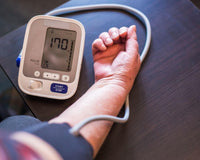Uses, Side Effects, Warnings And Dosage Of Lisinopril
In this article we discuss the uses, side effects, warnings and dosage of lisinopril. We also answer questions like what is lisinopril and how do I take lisinorpil?
What is Lisinopril?
Lisinopril is a prescription drug that comes as an oral tablet and an oral solution. It is available as the brand-name drugs Prinivil and Zestril but also as a generic drug. In this article we discuss the side effects, uses, and dosage of lisinopril.
Lisinopril And Alcohol
Drinking alcohol while taking lisinopril can result in serious negative side effects. Do not ever drink any form of alcohol while taking lisinopril.
Lisinopril Pronunciation
The pronunciation of lisinopril can be sounded out with the following syllables:
Luh si nuh pruhl
Uses of Lisinopril
Lisinopril is used to treat both high blood pressure and heart failure. It’s also used to improve your odds of survival after you experience a heart attack. Lisinopril can be used in conjunction with other therapies or as a stand alone treatment.
How Does Lisinopril Work?
This medication works by relaxing the blood vessels in your body. As a result, there is less stress on your heart and your blood pressure is lowered. Lisinopril belongs to a class of drugs called angio-converting enzyme (ACE) inhibitors. This refers to a group of medications that work in a similar way and are often used to treat similar conditions.
Side Effects of Lisinopril
Because lisinopril may lower blood pressure it can make you faint or dizzy. For this reason, you shouldn’t drive, operate machinery, or do anything else that requires you to be alert until you know how this drug affects you. Lisinopril may have other side effects—some more common and serious than others.
Common Side Effects
The most commonly reported side effects of lisinopril include:
- Headache
- Dizziness
- Persistent cough
- Chest pain
- Low blood pressure
Many of these effects, if they are mild, can go away within a few days or weeks. If they are more severe, however, talk with your doctor or pharmacist.
Potential Serious Side Effects
Contact your doctor right away if you have serious side effects. Call 911 if you feel like your symptoms are life threatening. Serious side effects and their symptoms include:
Hypersensitivity (allergic) reaction: Symptoms include:
- Trouble breathing
- Difficulty swallowing
- Swelling of your face, lips, tongue or throat
- Stomach (abdominal) pain
Kidney problems: Symptoms include:
- Tiredness
- Shortness of breath
- Weight gain
- Swelling of your hands, feet or ankles
Liver failure: Symptoms include:
- Elevated liver enzymes
- Stomach pain
- Nausea and vomiting
- Yellowing of the skin
High potassium levels:
- This medication may cause dangerously high potassium. This can result in arrhythmia (heart rate or rhythm problems).
Disclaimer: Our goal at ManifestRX is to provide you with the most relevant and accurate information. Because drugs affect each individual differently, we cannot guarantee that this information includes all possible side effects. The information on this page is not a substitute for medical advice. Always discuss possible side effects with a healthcare professional who knows your medical history.
Interactions With Other Medications
This drug may interact with other medications, vitamins, or herbs you are taking. To prevent interactions it is important to discuss with your healthcare professional everything you are currently taking.
Blood Pressure Drugs
Taking other blood pressure medication while taking lisinopril increases your risk for low blood pressure, kidney problems, higher blood potassium levels and can result in kidney failure. Some of these drugs include:
- Candesartan
- Irbesartan
- Losartan
- Telmisartan
- Valsartan
- Azilsartan
Diabetes Drugs
Diabetes drugs with lisinopril may lower your blood sugar levels too much. These medications include:
- Oral diabetes drugs
- Insulins
Potassium Supplements or Medications
Taking potassium-sparing diuretics when taking lisinopril can increase your potassium levels. Examples of these drugs include:
- Spironolactone
- Amiloride
- Triamterene
Pain Drugs
Pain medications like ibuprofen can decrease your kidney function. Other pain drugs that you should be weary of while taking lisinopril include:
- Naproxen
- Diclofenac
- Indomethacin
- Ketoprofen
- Sulindac
- Flurbiprofen
Disclaimer: Our goal at ManifestRX is to provide you with the most relevant and accurate information. Because drugs affect each individual differently, we cannot guarantee that this information includes all possible side effects. The information on this page is not a substitute for medical advice. Always discuss possible side effects with a healthcare professional who knows your medical history.
How Do I Take Lisinopril?
Your dosage of lisinopril can depend on a few different factors. All dosing may not be included here. For more information be sure to talk with your doctor or pharmacist.
- Your condition
- Your age
- Severity of your condition
- How your react to the first dose
- Other medications you are currently taking
Dosage of Lisinopril
Adult dosage (18-64 years) for hypertension (high blood pressure):
- Beginning dosage: 10 mg taken once daily
- Standard dosage: 20-40 mg taken once daily
- Maximum dosage: 80 mg taken once daily
Child dosage (6-17 years)
- Beginning dosage: 0.07 mg/kg of body weight (up to 5 mg) once daily
- Maximum dosage: 0.61 mg/kg (up to 40 mg) once daily
Senior dosage (65 years and older)
Seniors may process drugs more slowly than younger individuals. For this reason, if you’re a senior, you may take your medication on a different schedule or begin with a lower dose.
Adult dosage for heart failure (ages 18-64):
- Beginning dosage: 5 mg taken once daily
- Maximum dosage: 40 mg taken once daily
Child dosage for heart failure (ages 0-17)
Lisinopril isn’t approved and should not be used in children younger than 18 years of age for heart failure.
Senior dosage (ages 65 years and older)
Seniors may process drugs more slowly than younger individuals. For this reason, if you’re a senior, you may take your medication on a different schedule or begin with a lower dose.
Lisinopril Brand Names
- Prinivil
- Zestril
Take Lisinopril As Directed
It is important you take lisinopril as directed by your healthcare professional. If you don’t, this drug can come with serious side effects.
If you don’t take it as directed: If you don’t take your medication at all, more likely than not, your blood pressure will remain elevated.
If you suddenly stop taking: If you stop taking lisinopril, your blood pressure may spike.
If you don’t take it in regular intervals: You may not feel different and your blood pressure may or may not be well managed.
If you miss a dose: If you forget to take your medication, you can take it as soon as you remember. However, never try to “catch up” by taking more than your prescribed dose.
If you take more than prescribed: If you take too much, this may cause your blood pressure to drop too far. Contact your local Poison Control Center or call your doctor if you think you have taken too much.
Uses, Side Effects, Warnings And Dosage Of Lisinopril: Summary
Lisinopril is a prescription drug that comes as an oral tablet and an oral solution. It is available as the brand-name drugs Prinivil and Zestril and is used to treat both high blood pressure and heart failure. It’s also used to improve your odds of survival after you experience a heart attack.








